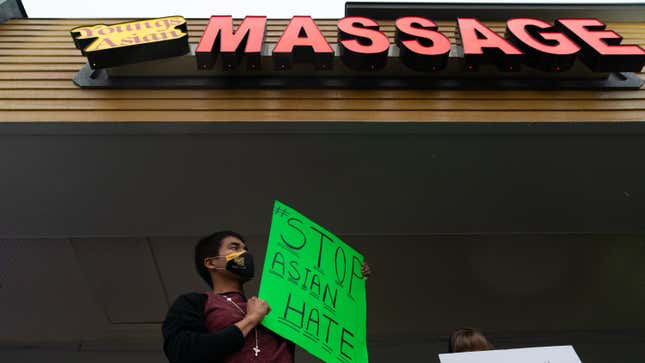Why Does the Murderer Get to Tell the Story?
Latest

What we know is that on Tuesday, March 17, a 21-year-old white man allegedly murdered eight people, six of them Asian women, at three different Atlanta-area massage parlors. That’s not much information, but commonalities between the victims do seem to suggest a pattern of anti-Asian violence at a time when anti-Asian violence in America is historically high. However, in America, crying racism sets off more alarms than crying murder, and so it would seem most major news outlets are taking the alleged killer (or, more likely the alleged killer’s lawyer) at his word when he says he didn’t specifically target Asian-American women—including Xiaojie Tan and Daoyou Feng, along with Delaina Ashley Yaun Gonzalez, Paul Andre Michels, and four others whose names have not been released—he simply murdered people he thought were sex workers, most of whom happened to be Asian-American women.
In a twenty-four-hour news cycle in which every major outlet is fighting for a spot atop the search rankings, there’s always more to the story, especially when the story involves violence on a mass scale. But while it might take weeks or even years to sort out the alleged shooter Robert Aaron Long’s history with sex addiction, sex workers, Asian women, and anti-Asian American sentiment amid the coronavirus pandemic, it takes mere seconds to publish his stated motivations, providing weeks of fodder for content in a conversation that Long himself is allowed to lead.
-

-

-

-

-

-

-

-

-

-

-

-

-

-

-

-

-

-

-

-

-

-

-

-

-

-

-

-

-

-

-

-

-

-

-

-

-

-

-

-








































